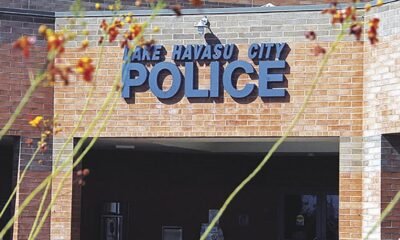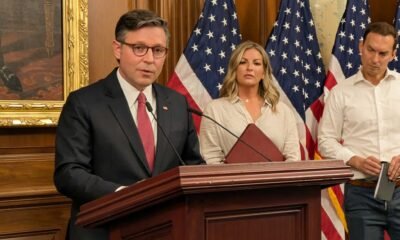Business
Tragedy Strikes: Lives Lost in Az Sober Living Homes Amidst Medicaid Fraud Mismanagement

At least 40 Native American residents from sober living homes and treatment facilities in the Phoenix area have died amid a state Medicaid fraud investigation that primarily targeted Indigenous individuals grappling with addiction. This grim statistic, resulting mainly from drug and alcohol use, covers a timeframe from spring 2022 to summer 2024, as reported by the Maricopa County Office of the Medical Examiner.
The deaths persisted even after Arizona’s Medicaid office announced a comprehensive investigation into numerous facilities in May 2023. The scale of the fraud was extensive enough that Medicaid reimbursements were subsequently halted for various behavioral health entities accused of malfeasance.
The Arizona Health Care Cost Containment System (AHCCCS), the state’s Medicaid agency, admitted that the fraudulent activities could have cost taxpayers up to $2.5 billion, yet it has failed to release figures correlating the scheme to the resident fatalities. Alarmingly, many of those who died were under the care of an agency that overlooked mounting evidence of negligence and fraud, leading to the recruitment of countless patients into unqualified treatment programs.
A recent class-action lawsuit filed by affected families highlights the perceived inaction of state officials. While Gov. Katie Hobbs attributed the failures to her predecessor, Doug Ducey, investigations by nonprofit organizations found that even under Hobbs’ administration, necessary reforms were delayed, perpetuating the crisis.
In one poignant case, Jeffrey Hustito, a 43-year-old from Zuni Pueblo, sought treatment for alcoholism, only to lose his life while under the care of a series of poorly regulated programs. His father, Anders Hustito, expressed regret over his son’s fate, stating, “We owe it to him to get justice.” Jeffrey died in a sober living home just days after receiving treatment for alcohol poisoning.
The lack of oversight permitted some providers to exploit the system, with reports of inflated billing practices that saw charges of tens of thousands of dollars for singular treatments. Significant increases in claims filed through the American Indian Health Program, a Medicaid variant for tribal citizens, were noted, with spending on the program nearly doubling from around $690 million in 2020 to nearly $1 billion in 2021.
Community advocate Reva Stewart estimates that the death toll may far exceed official counts, as many individuals recruited into fraudulent programs have gone missing or found themselves homeless following abrupt closures of facilities. This ongoing issue has raised serious concerns among indigenous communities about the integrity of their healthcare system.
Despite the overwhelming evidence and ongoing investigations, critical reforms have faced resistance. Previous attempts to regulate reimbursement rates were shelved due to pushback from behavioral health providers, many of whom voiced fears that such changes would worsen service availability.
As the saga continues, the Arizona governor’s office has begun to acknowledge the depth of the crisis, prompting a response that includes a hotline for displaced patients. However, the plight of victims remains pressing, as many individuals have been left homeless or without essential services.
Anders Hustito and others like him await accountability from state officials as they seek justice for their loved ones lost amid systemic failures in the addiction treatment landscape. “I’m still hurting,” he lamented, emphasizing that healing cannot begin until proper accountability is rendered.

















